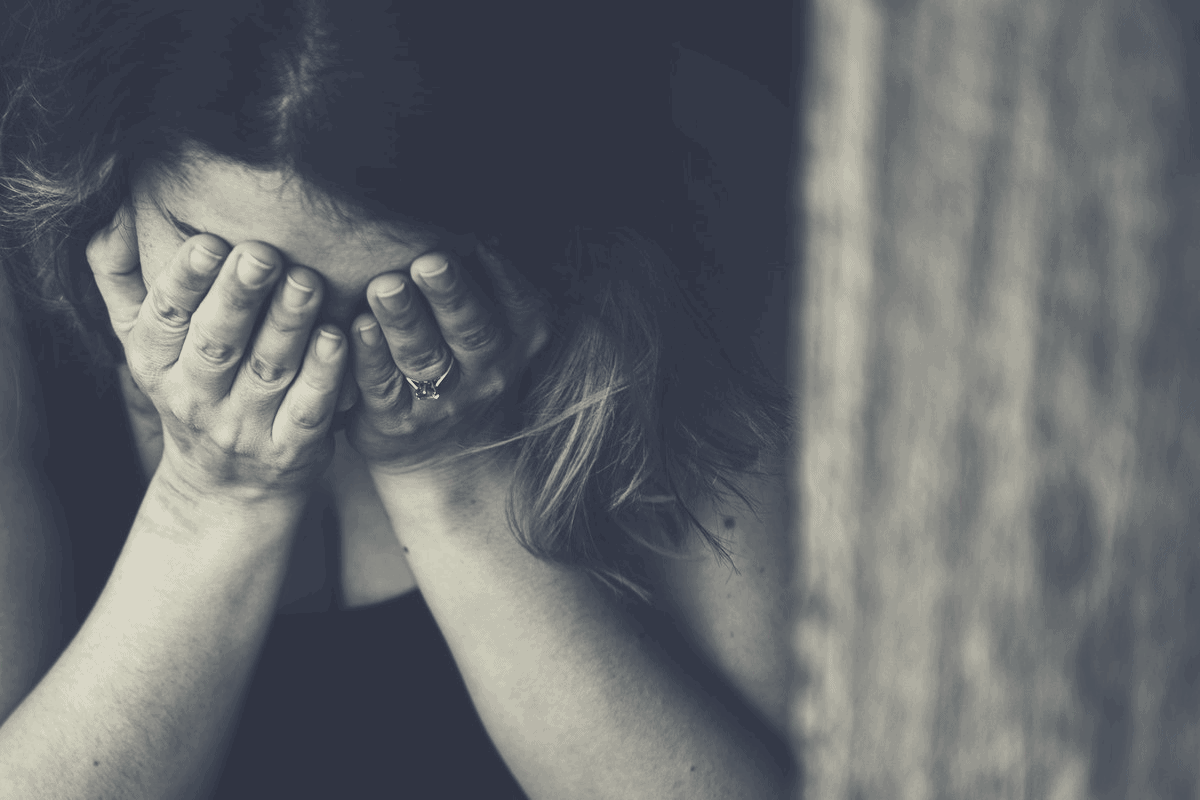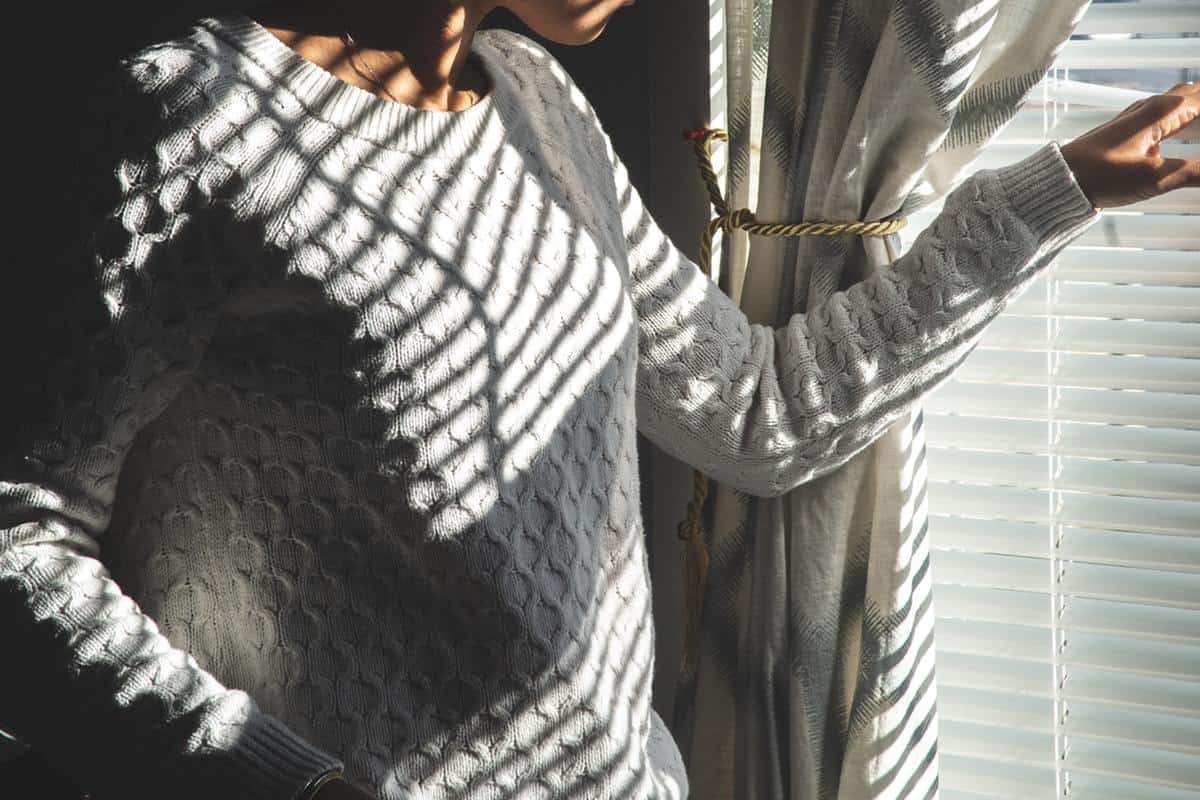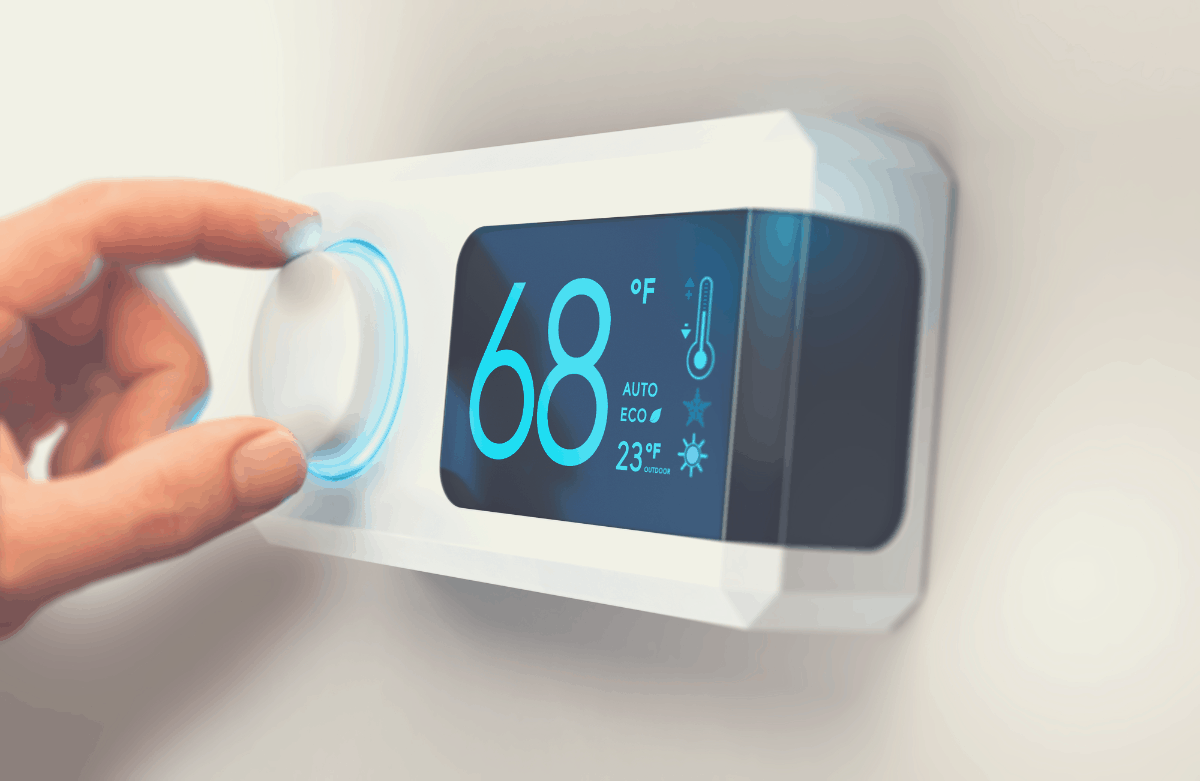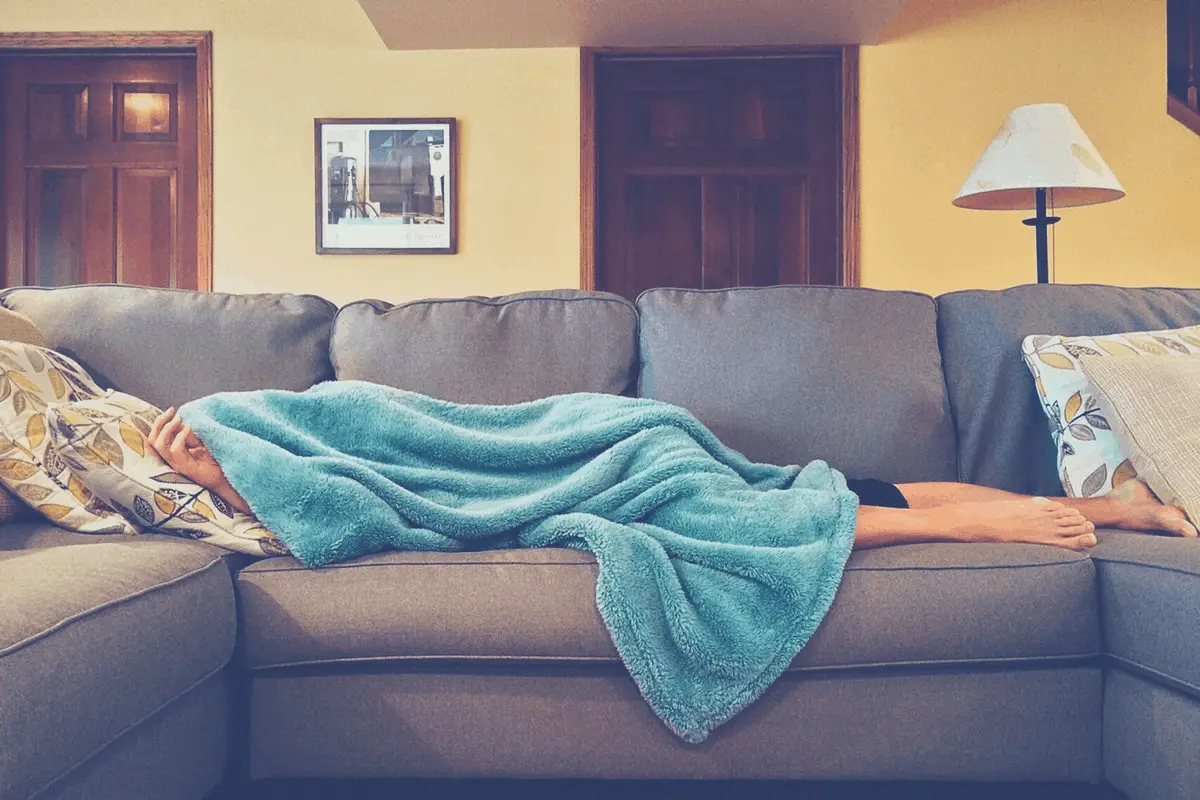Have you ever noticed that even on days when you don’t want to work and sleep in, you wake up as soon as the sunlight hits your room? Most people instinctively respond by dragging the blinds of their bedroom window down to darken their surroundings so they can get back to sleep.
The human body naturally associates darkness with sleep and considers light as the time to be awake and alert. Therefore, we are biologically wired to sleep much faster, better and longer at night than during the day, even if you are a night shift worker.
So is it good to sleep with the lights on? The answer is no. Leaving your bedroom lights on can deprive your body of a deeper and longer sleep, which can lead to insomnia. The practice can also lead to long-term health complications that can significantly affect your quality of life.
Disadvatages of Sleeping With the Lights On
Sleeping in the bright light can harm your life in many ways. Let’s dive into a few of the reasons why you should ditch those night lamps and other bedroom light sources before you hit the hay each night.
Remember, these are all possible side effects of a lack of good sleep that will become inevitable as long as you continue to sleep without turning off the lights.
1. The obesity
Did you know that keeping the lights on at bedtime could be one of the reasons why your waistline is growing rapidly and nothing seems to be working? Lack of quality sleep has been linked to weight gain in several studies.
Sleeping light can deprive you of good quality sleep, which in turn increases your appetite, especially for high-calorie foods. The result is an increased temptation to eat more, which stifles the ability to lose or maintain weight, even for those who lead a physically active lifestyle.
The cycle can continue for many years, ensuring a rapid increase in your body weight and a higher likelihood of suffering from one or another obesity-related health problem.
2. Depression

Did you know that leaving the lights on in the bedroom at night is one of the leading causes of depression? Well, many of us have experiences of sudden mood swings after a bad night and the quality of your sleep can be behind it.
According to Harvard Health, depression and related health conditions like bipolar disorder and anxiety are common side effects of poor sleep. Over time, chronic insomnia can develop into more complicated long-term mental illnesses.
If you’re sleeping with the lights on, it’s no wonder your mood plummets at the slightest opportunity. In most cases, friends and loved ones are forced to feel the brunt of your moods, which can sour even the closest of relationships.
3. Increased Risk of accidents
Do you operate heavy machinery or even drive to work? If the answer is yes, you need the best sleep you can get to stay awake.
Unfortunately, if you go to bed with the lights on, the quality of your night’s rest may be reduced, which can lead to daytime sleepiness. Even if you manage to stay awake, your alertness may decrease, leading to a higher risk of accidents.
Why do you think some cold and flu medications warn you not to drive or operate heavy machinery? It’s because taking these medications can cause side effects such as drowsiness, which increases the risk of accidents.
Keep in mind that 50 percent of traffic-related deaths are caused by drowsiness and dizziness behind the wheel, so you can’t ignore the risk.
4. Low Libido
Sleeping with light on at bedtime has been linked to low libido in men and women of all ages. This makes sense, as mediocre sleep typically leads to side effects ranging from depleted energy to drowsiness and low mood.
These side effects naturally deter most of us from sexual pleasure or at least reduce our interest in getting freaky.
In addition, research has shown that good quality sleep increases testosterone levels, which can inevitably increase sexual desire.
5. Chronic Conditions
Lack of optimal sleep can increase the risk of developing chronic health conditions in the future. Type 2 diabetes, high blood pressure, and many heart diseases have been linked to leaving the lights on at night.
These conditions can significantly impact your quality of life and further reduce the likelihood of sleeping well at night.
Remember, failing to turn off the lights at bedtime can also disrupt healthy sleep patterns. This can reduce your body’s immunity to infection and disease, making you even more susceptible to developing poor health sooner rather than later.
6. Wrinkles and Skin Ageing
Has your skin aged faster than normal? This could probably be due to lack of sleep or moderate quality of sleep. This is one of the reasons why sleeping with the lights on is not a good idea.
Napping with the lights on can lead to puffy eyes and other reactions like dark lines under your eyes and skin wrinkles.
In addition, the mediocre sleep that comes from turning on the lights at bedtime can lead to the release of cortisol and other stress hormones.
7. Cancer

Failure to sleep in the dark has been associated with an increased risk of suffering “The Big C” in many cases.
According to research, overexposure to light, especially at bedtime, can increase the risk of developing breast cancer in both men and women.
The situation becomes even more critical for those with a family history of breast cancer.
8. Fertility
Do you want to start a family or expand your existing brood? Sleeping with the lights on at night may not be the way to go. We have already noted the devastating effects of this practice on your health and overall well-being.
But sleeping with the lights on can also impact your reproductive health by exposing you to excessive amounts of light and disrupting your natural sleep cycle.
The result is decreased fertility, which can make it difficult to get pregnant if you’re trying to have a baby.
9. Forgetfulness
The connexion between sleepiness and forgetfulness is obvious. When you are sleepy or feel sleepy, it can be difficult to remember even the most mundane things. Sometimes the ability to do mundane tasks that you have mastered can yield erratic results at best.
This is another good reason why it is important to sleep without lights. Dark bedrooms at night can provide the superior sleep your body needs to stay awake during the day and maintain a sharp memory.
10. Eye Irritation
Have you ever woken up in the middle of the night feeling puffy and irritated due to the brightness of your bedroom lights? That’s because bright lights during the night can be very taxing on the eyes.
This is especially true for those who have overly bright bedroom lights. If you have always slept in the dark in the past, suddenly sleeping under lights can also be irritating. This is why many experts recommend dimmable light bulbs if you need to sleep with the lights on for one reason or another.
Advantages of Sleeping with Lights
Sleeping with lights on doesn’t always have to be a disaster. There are a few positives that can be derived from this practice.
First, they can be the perfect way to take short naps during the day. If you want to avoid the risk of oversleeping, exposure to significant amounts of light can be the right choice.
Also, many toddlers and children are so afraid of sleeping in the dark that leaving the lights on in the bedroom is a no-brainer. As they get older, it becomes easier to teach them to sleep peacefully in the dark.
How to Achieve Good Sleep While Keeping the Lights On
OK, so you now know that leaving the lights on at night can lead to a poor night’s sleep. However, you may find yourself in situations where sleeping in the dark is not an option for one reason or another.
Others have become so accustomed to sleeping in the bright lights at night that the thought of suddenly turning off the lights makes them cringe. If you must leave the lights on in your bedroom, here are a few tips to keep sleep to a minimum.
1. Keep Out Your Smartphone and Other Gadgets
The blue light that smartphones and other gadgets emit can be taxing on the eyes, especially at bedtime when you’re trying to rest. If you love leaving TV on all night, this could explain why you never seem to get enough rest after waking up in the morning.
Artificial light can be so bad for your sleep that it can increase your risk of weight gain by 17 percent, according to one study.
2. Dark Window Blinds

Even if you have to leave the lights on in your bedroom at night, make sure you pull the blinds on your window so they provide darkness.
These window blinds come in different colors, textures, and fabrics, but we recommend choosing one that blocks sunlight from entering the room. This is because natural sunlight can be extremely strong to wake you up from the deepest REM sleep.
This can rob you of the satisfying rest that the body needs for all-day productivity. Also, make sure that the blinds are fully drawn to block out any form of natural light.
I personally recommend the NICETOWN Blackout Curtain Blinds from Amazon to keep your bedroom dark and cozy. I sleep much better and longer since I ordered it 3 months ago.
3. Dim Bedroom Lights
Practice makes perfect, right? Well, if you’re afraid of sleeping in complete darkness, or just don’t want to turn off your bedroom lights overnight, then maybe you can start by turning down the lights at bedtime.
This means switching to lights that are relatively dimmer than the ones you currently sleep with. Over time, you should find it easier to go to bed in complete darkness.
Even children who are afraid of complete darkness will eventually be happy to sleep with the lights dimmed and will get used to sleeping in complete darkness.
I found the MAZ-TEK Plug-In LED Light with Auto Dusk TO Dawn on Amazon. It automatically adjusts the light during the night so you can sleep comfortably and cozily at all times.
4. Skip Those Day-time Naps
Naps during the day can be a great way to rest your brain and improve concentration in the middle of the day. But prolonged napping in bright daylight can disrupt your Circadian Rhythm and signal to the body that it’s OK important to get some sleep in full light.
This can prevent you from enjoying the quality of sleep you truly deserve and can lead to long-term sleep disorders with adverse effects on the body.
If you must sleep during the day, take a nap of no more than 25 minutes. This should be enough to give your body a quick injection of energy without significantly affecting your internal sleep patterns.
5. Stick to a Normal Sleep Cycle
When it comes to the human body, consistency is always the rule of the game. And this is especially true when it comes to your sleep.
Going to bed and waking up at the same time every night is one of the best ways to have memorable nights, even if you have to leave the lights on. It allows your body to optimize your sleep and ensure that you wake up well-rested and full of energy.
6. Lower Your Thermostat

Cool temperature makes us sleep naturally. By default, the body lowers its temperature to 1-2 degrees to prepare for a good night’s rest. Why do you think falling asleep on hot summer nights can be so hard?
According to National Sleep Foundation, the optimal temperature for sleep is around 65 degrees. So keep that in mind the next time you’re having trouble getting to dreamland.
If you live in a hot region, you may be forced to open your bedroom windows to let in a fresh breeze or turn on the AC to cool down your room.
7. Watch What You Eat at Night
Eating late at night can be a surefire way to a night of tossing and turning. Even if you have to sleep with the lights on, it’s important to eat at least 2 hours before bedtime.
While sleeping on an empty stomach can have negative effects on your sleep, eating a full meal right before jumping into bed can cause indigestion and other problems that disrupt sleep.
Did you read the article we wrote about going to bed on a full stomach? Click here to read it.
8. Quit The Caffeine
Drinking several cups of coffee throughout the day can also limit your ability to enjoy a good night’s rest. Ideally, it’s best to stop drinking coffee, but if you’re a coffee maven who can’t realistically stop anytime soon, it’s important to drink no more than 4 cups per day.
Also, make sure you drink your last cup at least 6 hours before your regular bedtime. This will give you enough time for the effects of the caffeine to wear off before you go to bed.
9. Engage in a Relaxing Pre-bedtime Routine
What do foot massages, hot baths, reading and meditating have in common? They can provide deep mental relaxation for effortless sleep.
If you have to go to bed with the lights on, a relaxing activity right before bed can be a good idea.
By the time your body lands on the bed, the brain would have already released the right amounts of the relaxation hormone known as melatonin. This should make drifting off to sleep much easier.
10. Exercise
Exercise is another great way to set your body up for restful sleep. It is important to find the time to go to the gym early in the morning to clear your head and get a good start to the day.
But light physical activity, such as walking the dogs in the evening, can also boost your ability to sleep.
Making love to your partner before bed can be another great way to get a good night’s sleep and wake up chipper to take on the world.
11. Wear Your Sleep Mask
Sleep masks can provide some relief from the bright bedroom light if you have to leave it on at night for some reason. These masks can protect your eyes from the rays of the light and make you feel like you are sleeping in complete darkness.
The good news is that sleep masks come in different shapes, sizes, and brands. So, everyone can choose the perfect option for their needs without any hassle.
The Alaska Bear Natural Silk Sleep Mask is number one on Amazon right now. I personally use it regularly on long haul flights and bus trips. It feels comfortable on the eyes and gives the illusion of complete darkness even in bright environments.
Conclusion
Looking for the best night’s sleep you can get? It’s important to aim for dark and cool environments. Keep in mind that the opposite can be true and rob you of maximum sleep enjoyment.
However, other activities can improve your sleep even if for some reason you can’t give up the light in bed.
